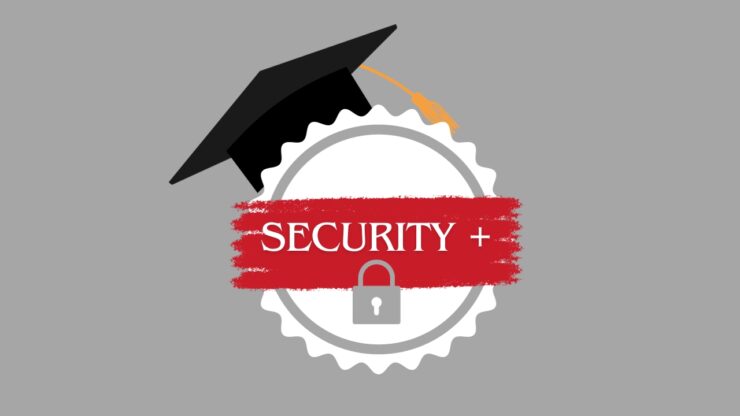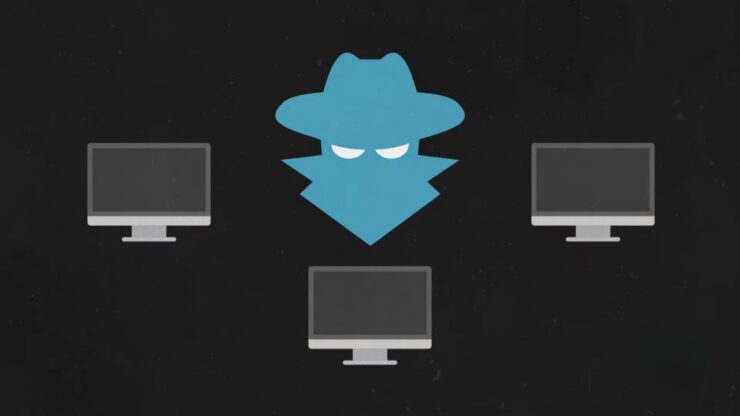Cybersecurity is a rapidly evolving field, offering numerous opportunities for individuals passionate about protecting digital assets. The good news is that a formal degree isn’t always a necessity to break into this industry.
In this comprehensive guide, we’ll explore various strategies and tips for aspiring cybersecurity professionals to establish themselves in this dynamic sector without a traditional academic background.
1. Understanding the Cybersecurity Landscape
Cybersecurity isn’t just about hacking or defense; it’s a vast field with multiple specialties. From threat intelligence to ethical hacking, incident response, and compliance, the sector offers a plethora of roles.
Before diving in, it’s crucial to grasp the broad spectrum of what cybersecurity entails. This understanding helps in identifying which area resonates with your skills and interests. Learn more about cybersecurity and our comprehensive Managed IT services at Advanced IT.
2. Self-Education and Continuous Learning
The cornerstone of a successful cybersecurity career is knowledge. With the field constantly evolving, keeping abreast of the latest technologies and threats is essential. Start by familiarising yourself with the basics of networking, systems administration, and information security principles.
Online platforms like Coursera, Udemy, and Cybrary offer a wealth of courses, many of which are free or low-cost, covering various cybersecurity topics. Books, blogs, webinars, and podcasts are also invaluable resources. The key is to cultivate a habit of continuous learning and curiosity.
3. Gaining Practical Experience

Theory is just one side of the coin; practical experience is equally crucial. Setting up your own lab at home using virtual machines is a great way to start. Experiment with different operating systems, set up networks, and simulate attacks in a controlled environment.
Participating in Capture The Flag (CTF) competitions or contributing to open-source security projects can also provide hands-on experience and help you understand real-world cybersecurity challenges.
4. Networking and Community Involvement
Cybersecurity, like many industries, thrives on connections and community. Attend industry conferences, seminars, and meetups to network with professionals.
Engaging in online forums and social media groups dedicated to cybersecurity is also beneficial. These interactions can lead to mentorship opportunities, insider knowledge about the field, and potentially open doors to job opportunities.
5. Earning Certifications

While a degree might not be essential, certifications can play a pivotal role in proving your skills and knowledge. Certifications like CompTIA Security+, Certified Ethical Hacker (CEH), and Certified Information Systems Security Professional (CISSP) are highly regarded in the industry.
They provide structured learning paths and are often a prerequisite for many roles in cybersecurity. Select certifications that align with your career goals and prepare diligently for them.
6. Building a Personal Brand
In a competitive field like cybersecurity, standing out is key. Build a personal brand by sharing your knowledge and insights. Start a blog, create tutorial videos, or speak at local events.
Showcasing your expertise not only helps in learning but also puts you on the radar of potential employers. A robust online presence through LinkedIn or a personal website where you share your projects and achievements can be a game-changer.
7. Leveraging Transferable Skills
If you’re transitioning from another field, identify and leverage transferable skills. Skills like problem-solving, analytical thinking, and attention to detail are highly valued in cybersecurity.
Experience in IT, network administration, or even customer service can provide a solid foundation for a cybersecurity career. Highlight these skills in your resume and during interviews.
8. Pursuing Internships and Entry-Level Positions

Getting your foot in the door might mean starting with internships or entry-level positions like a security analyst, network administrator, or IT technician.
These roles provide practical experience and a deeper understanding of how security integrates into broader IT operations. They also offer a chance to prove your skills and dedication, often leading to more advanced positions in cybersecurity.
9. Developing Soft Skills
Technical expertise is crucial, but soft skills are equally important in cybersecurity. Effective communication, teamwork, and the ability to explain complex technical concepts in simple terms are invaluable.
Cybersecurity professionals often need to collaborate with various departments and communicate risks and strategies to non-technical stakeholders. Developing these skills can make a significant difference in your career progression.
10. Staying Abreast of Industry Trends and Threats
The cybersecurity landscape is dynamic, with new threats and technologies emerging regularly. Keeping up-to-date with current trends, emerging threats, and industry best practices is vital.
Follow industry news, subscribe to cybersecurity newsletters, and participate in online communities. This ongoing learning not only enhances your skills but also demonstrates your commitment to the field.
11. Engaging in Ethical Hacking and Vulnerability Research

For those inclined towards the offensive side of cybersecurity, ethical hacking and vulnerability research are fascinating areas. Learning to think like a hacker can provide valuable insights into defending networks and systems.
Resources like Hack The Box, VulnHub, and OverTheWire offer platforms to practice ethical hacking skills. Remember, ethical hacking is about strengthening security, and it’s imperative to adhere to legal
and ethical guidelines at all times.
12. Focusing on Specialization
As you gain experience and knowledge, consider specialising in a specific area of cybersecurity. Specialisations like penetration testing, malware analysis, cybersecurity auditing, or digital forensics are in high demand.
Specialising allows you to deepen your expertise in a particular niche, making you a valuable asset to employers. Research the various domains, experiment with different areas, and choose a specialisation that aligns with your interests and career aspirations.
13. Building Problem-Solving Skills
Cybersecurity is essentially about solving problems and mitigating risks. Developing strong problem-solving skills is therefore crucial. This involves thinking critically, being able to analyse complex situations, and coming up with effective solutions.
Engage in activities and challenges that push your problem-solving abilities, such as puzzle-solving, coding challenges, or participating in cybersecurity competitions.
14. Seeking Mentorship and Guidance

Having a mentor in the field can provide invaluable guidance and insights. A mentor can offer advice, share experiences, and help navigate the complexities of the industry.
Seek out mentors through your professional network, community events, or online platforms. Be open to feedback and learning from their experiences.
Conclusion
Breaking into cybersecurity without a degree is challenging but entirely feasible with the right approach. It requires dedication, continuous learning, and a willingness to start from the ground up. By gaining practical experience, earning relevant certifications, networking, and building a strong personal brand, you can establish a successful career in this exciting and ever-evolving field.
Remember, cybersecurity is not just a job; it’s a mindset, a continuous pursuit of knowledge, and a commitment to protecting the digital world.
Related Posts:
- How to Get into Cyber Security Without a Degree:…
- How to Become a Special Education Teacher: Insider…
- Overcoming Adult Toys Stigma: Embracing Pleasure…
- Where Does Cannabis Come From? A Historical Odyssey…
- What Is the Most Complex Game You Could Play At A…
- How Do You Get More Currency in PoE? Tips for Beginners 2024











